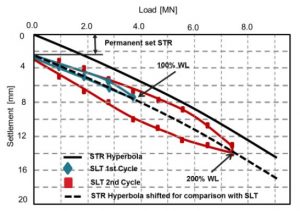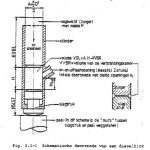Recent advances of rapid load testing in Asia and Europe
Autor(s): |
Chew, S.H.; Middendorp, P.; Bakker J.; Chua G. |
 |
Year: |
2015 |
|
Language: |
English |
|
Where: |
Proceedings XVI European Conference on Soil Mechanics and Geotechnical Engineering, Edinburgh, Scotland |
INTRODUCTION:
Rapid Load Testing (RLT), by which a quasi-static load is applied to a foundation pile, is used increasingly as an alternative to static load testing (SLT) and high strain dynamic testing (HSDT), commonly referred to as dynamic load testing (DLT), for cast in- situ piles, such as drilled shafts. It is recognized nowadays that the determination of the pile capacity with DLT through signal matching techniques such as CAPWAP, TNOWAVE and AllWave-DLT yields a wide spread of results (Stahlmann et. Al, 2012), making it practically impossible to calibrate the DLT results with SLT results. This spread is due to the empirical and very subjective assumptions that are used to interpret the test data, irrespective of pile type, but especially for cast-in-situ piles (Holeyman et al. 2001, Viana da Fonseca in 2008, Herten et al, 2013).
Download
You can download the entire article here, after entering your name and e-mail address.




